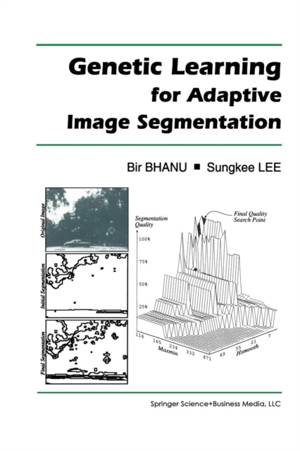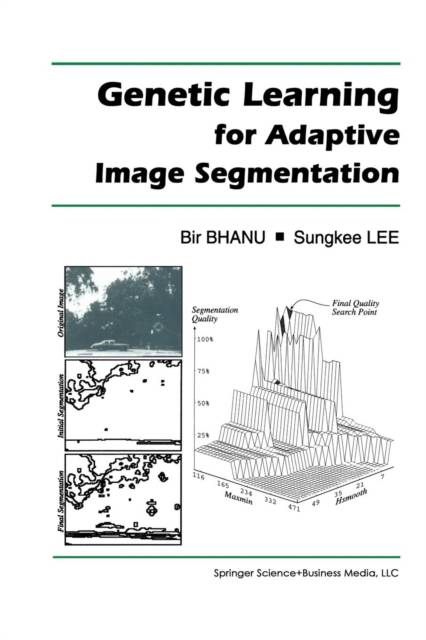
- Afhalen na 1 uur in een winkel met voorraad
- Gratis thuislevering in België vanaf € 30
- Ruim aanbod met 7 miljoen producten
- Afhalen na 1 uur in een winkel met voorraad
- Gratis thuislevering in België vanaf € 30
- Ruim aanbod met 7 miljoen producten
Zoeken
€ 195,95
+ 391 punten
Uitvoering
Omschrijving
Image segmentation is generally the first task in any automated image understanding application, such as autonomous vehicle navigation, object recognition, photointerpretation, etc. All subsequent tasks, such as feature extraction, object detection, and object recognition, rely heavily on the quality of segmentation. One of the fundamental weaknesses of current image segmentation algorithms is their inability to adapt the segmentation process as real-world changes are reflected in the image. Only after numerous modifications to an algorithm's control parameters can any current image segmentation technique be used to handle the diversity of images encountered in real-world applications.
Genetic Learning for Adaptive Image Segmentation presents the first closed-loop image segmentation system that incorporates genetic and other algorithms to adapt the segmentation process to changes in image characteristics caused by variable environmental conditions, such as time of day, time of year, weather, etc. Image segmentation performance is evaluated using multiple measures of segmentation quality. These quality measures include global characteristics of the entire image as well as local features of individual object regions in the image.
This adaptive image segmentation system provides continuous adaptation to normal environmental variations, exhibits learning capabilities, and provides robust performance when interacting with a dynamic environment. This research is directed towards adapting the performance of a well known existing segmentation algorithm (Phoenix) across a wide variety of environmental conditions which cause changes in the image characteristics. The book presents a large number of experimental results and compares performance with standard techniques used in computer vision for both consistency and quality of segmentation results. These results demonstrate, (a) the ability to adapt the segmentation performance in both indoor and outdoor color imagery, and (b) that learning from experience can be used to improve the segmentation performance over time.
Genetic Learning for Adaptive Image Segmentation presents the first closed-loop image segmentation system that incorporates genetic and other algorithms to adapt the segmentation process to changes in image characteristics caused by variable environmental conditions, such as time of day, time of year, weather, etc. Image segmentation performance is evaluated using multiple measures of segmentation quality. These quality measures include global characteristics of the entire image as well as local features of individual object regions in the image.
This adaptive image segmentation system provides continuous adaptation to normal environmental variations, exhibits learning capabilities, and provides robust performance when interacting with a dynamic environment. This research is directed towards adapting the performance of a well known existing segmentation algorithm (Phoenix) across a wide variety of environmental conditions which cause changes in the image characteristics. The book presents a large number of experimental results and compares performance with standard techniques used in computer vision for both consistency and quality of segmentation results. These results demonstrate, (a) the ability to adapt the segmentation performance in both indoor and outdoor color imagery, and (b) that learning from experience can be used to improve the segmentation performance over time.
Specificaties
Betrokkenen
- Auteur(s):
- Uitgeverij:
Inhoud
- Aantal bladzijden:
- 271
- Taal:
- Engels
- Reeks:
- Reeksnummer:
- nr. 287
Eigenschappen
- Productcode (EAN):
- 9781461361985
- Verschijningsdatum:
- 22/12/2012
- Uitvoering:
- Paperback
- Formaat:
- Trade paperback (VS)
- Afmetingen:
- 156 mm x 234 mm
- Gewicht:
- 417 g

Alleen bij Standaard Boekhandel
+ 391 punten op je klantenkaart van Standaard Boekhandel
Beoordelingen
We publiceren alleen reviews die voldoen aan de voorwaarden voor reviews. Bekijk onze voorwaarden voor reviews.











